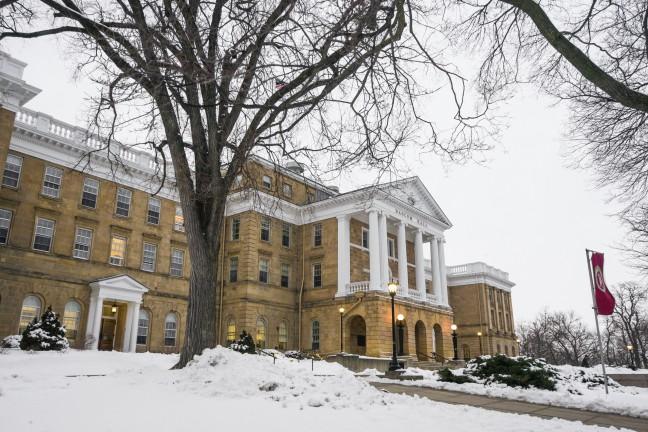Sunday night, the University of Wisconsin’s Twitter account stated that despite the impending winter storm, classes would be in session as normal. UW continued on to say that if students can’t safely reach their classes, then they should contact their professors.
Weather Update: UW is open for classes and normal business Monday.
If you can’t travel to campus safely, contact your instructor/supervisor.
We're monitoring forecasts re: the extreme cold. We’ll share info about any changes early this week. Details: https://t.co/OS7buwTOOB
— UW–Madison (@UWMadison) January 28, 2019
This, unsurprisingly, was ill-received. Dozens of students aired their frustrations ahead of what is panning out to be a very cold and wintry week.
Forecast predictions seemed a bit exaggerated and once the snow settled, Monday morning did not seem too much snowier than any other winter day. While UW’s decision to keep classes open appears to be vindicated, there is a broader problem at stake.
There is no apparently concrete way for determining whether the university shuts its doors for weather. In all online published materials, UW simply defers to the Chancellor to decide when or if classes should be canceled. “The chancellor is responsible for determining if, for the safety and welfare of students and staff, classes will be postponed,” the website reads.
Now that’s all well and good, but within the notice for keeping classes open this Monday, the university advised: “Minimize time outdoors if walking across campus. Use any public building as a warming area and review ways to stay safe.”
If a student has to go through tedious hoops of cutting through buildings simply to get to class, then it’s probably unsafe to hold classes. Issuing that warning undermines the claim of pursuing the safety and welfare of students.
All of this boils down to the lack of uniformity for canceling class. The university needs to adopt a policy of bright-line rules for winter weather and class cancellation. Yes, circumstances are important and often that’s what makes the difference in cancellations, but at the very least there has to be some sort of specificity.
For example, the rule could be if there are 10 inches of snowfall or -40 degrees Fahrenheit projected windchill, then the university will automatically evaluate the circumstance more seriously than at the Chancellor’s whim. Alternatively, the university could simply state that if weather meets certain conditions then classes will automatically be canceled.
This ambiguity most negatively impacts students who live off campus and non-traditional students. Commuting to campus, or frankly walking across campus itself, can be a daunting task. Taking the bus is always preferred, but timing doesn’t always work with everyone’s schedule.
Similarly, ride sharing programs such as Uber and Lyft can become expensive if one is to rely on them for the duration of the winter months. Additionally, for students who may have children, work full time or juggle other obligations alongside their education, not having clear guidelines for class cancellations causes excessive stress.
Over the years there have been numerous weather-related incidents. From 2009-12 there were three closings due to the weather, with the 2011 closing most notably starting the now yearly tradition of “Battle for Bascom.” So there’s nothing institutionally saying that UW couldn’t close, and there’s nothing that indicates that the university couldn’t change their rules.
Wednesday has an expected windchill somewhere around -65 degrees Fahrenheit. To UW’s own admission, anything -45 windchill or below is too cold to be outside. So it begs the question, what will happen Tuesday night? Will the university close their doors, or will they just expect their students to procure Antarctic expedition gear for their trek to death en-route to class?
If only there were some clearer rules to determine so.
Adam Ramer (aramer2@wisc.edu) is a senior majoring in political science and history.


